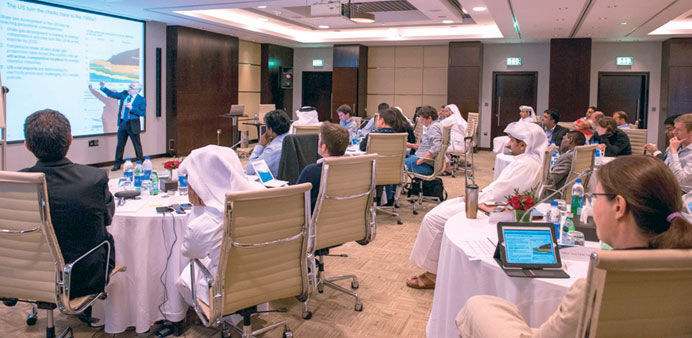HEC Paris in Qatar recently hosted the first of two modules of ‘Energy Major’ in Doha as part of the HEC Executive MBA programme.
Reflecting the international character of the HEC Executive MBA, a total of 28 participants, including a company vice-chairman and CEO from Lebanon, joined other senior executives from Qatar, France, India, Uganda, Ireland, Egypt, Germany, Senegal, the UK and the Netherlands during the six-day course.
With the second module scheduled to be held in Paris, the first ‘Energy Major’ provided an opportunity for participants to interact with like-minded peers from around the globe and benefit from a relevant venue with academic and industry experts.
Organised with the support of the Total Chair in Energy and Management, ‘Energy Major’ is one of eight majors that HEC Executive MBA participants could choose from.
The eight majors are in luxury, services, entrepreneurship & innovation, aerospace & aviation, global business perspectives, digital & telecom businesses, reinventing business for emerging markets, and energy.
For those opting not to take the entire HEC Executive MBA programme, an Advanced Certificate in Energy may also be taken separately.
“Qatar is an important energy hub for the world,” said Prof Laoucine Kerbache, CEO and academic dean of HEC Paris in Qatar. “With the Qatar Statistics Authority indicating that the country’s oil and gas sector accounted for 58% of Qatar’s gross domestic product in 2011, and with proven gas reserves that are the third largest in the world at the end of 2012, Doha is undoubtedly a suitable place to host ‘Energy Major’,” he asserted.
Besides the schedule of lectures, workshops and presentations, dinner events and guest lectures were also organised. A dinner was held on May 21 at Sharq Village & Spa and attended by Stephane Michel, managing director of Total E&P Qatar, as well as HEC Paris alumni who had the chance to network with peers and reinforce their relationship with the institution.
With the objective of the first module being to offer a comprehensive view of the upstream sector in all its aspects, including reserves, productions, players (IOC, NOC and service contractors), investment costs, systems of taxes, contracts, financing etc, participants were given the energy “toolbox” by way of an introduction to the leading macro-models of energy supply-and-demand balance currently and going forward.
The participants were also able to look more specifically at the fundamentals of oil and gas, as well as coal as major primary energy sources.
Part of the course was devoted to understanding the variety and complexity of energy contracts, and the extent to which they are critical to ensure the bankability of energy infrastructure projects. Other topics were likewise developed, in particular energy project development and management or the importance of the shipping industry.
The participants also visited the RasGas headquarters and Texas A&M University at Qatar.

A training session in progress at the ‘Energy Major’.
